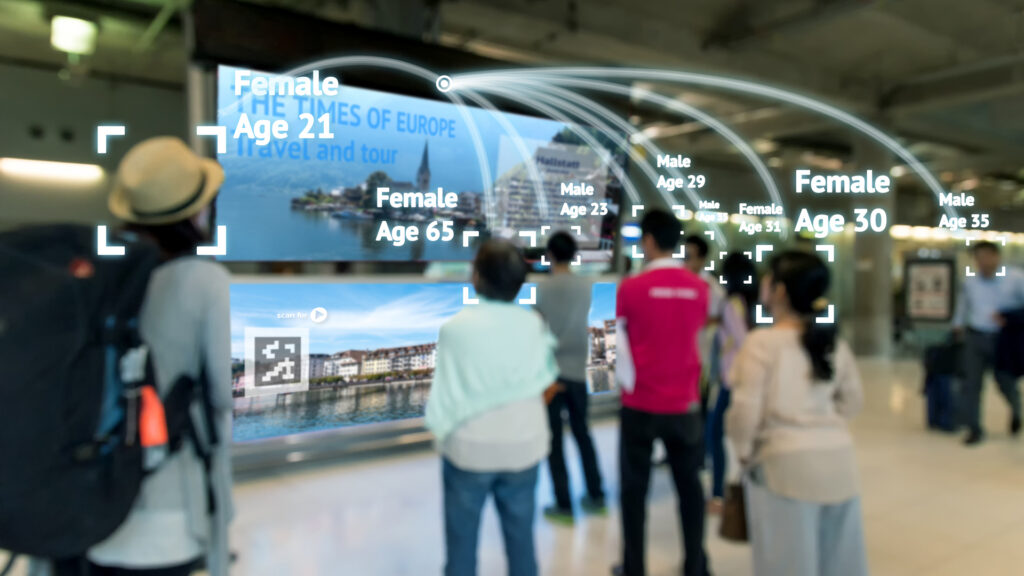Consumers increasingly prefer the convenience of online shopping over going to stores, right from buying groceries to shopping solitaires. Retailers have touched every aspect of our life and presented us with options like online shopping, omnichannel experience, personalized marketing etc. However, maintaining user loyalty to your business is always a challenge. Therefore, eCommerce businesses are trying something unique everyday to attract new users and engage buyers.
AI is turning out to be a weapon for bringing stickiness in the online stores. It could save the retail industry from the recent disruption by riding the innovation excellence to delivering data backed experience. So, here’s how AI can be a gamechanger in the space of retail and eCommerce.
#1 Next Generation Customer Experience

If the retail platform can predict a consumer style and size at the time of browsing, this will result in better sales and fewer returns. It will also help consumers to buy things quickly and easily, having a pleasant experience. Finally, AI can help sort data to profile individual shopper needs and make experience consumer-centric and relevant. Consumers won’t have to choose their style, rather it will be automatically selected matching their taste. The system will achieve this by looking into their sales history, online browsing, and social media activities.
#2 Find Your Look
Visual search is slowly emerging as the next-generation search. Customers can use their smartphone to take a pic of an item and their shopping app will display the similar items from the store’s inventory. This AI-empowered visual search will help shoppers to find desired things much earlier. For example, Pinterest’s recent search tool, Lens detects items on the web and suggest related items. Shazam does the same for products. Furthermore, retail brands are using the blend of visual search and AI to enhance the online shopping experience.
#3 Personal Stylist

Brands are garnering more information about their shoppers, their gender, their choices, their needs and even their device details. This information when put to work with artificial intelligence algorithms will result in far better and more personalized style recommendations. The shop app can act as their personal stylist who can analyze product images viewed and search the database to suggest the similar and liked products. This can be blended with the real time notifications for price drops and best deals.
#4 Intelligent Omnichannel
Shopping websites are strengthening their presence by being available to customers at each touchpoint and every channel. AI could prove to be crucial for streamlining the communication between online inventory, multiple physical stores, boutiques, warehouse, delivery, and returns. Chatbots empowered by AI can engage consumers across all social media channels such as Facebook, Twitter, eCommerce website, in-store media devices and location based apps.
#5 Social Sales Assistant

Social media has turned out to be an important influencer in the space of shopping. All major brands are showcasing their products on their social media channels in addition to providing a buy button or redirecting them to websites and apps. They are also making use of the sponsoring option of social media channels to increase the reach of their products. The data can be employed to analyze whether the sponsored posts are resulting in sales. AI can help to profile people who are directed through the social media and their style and product they are looking for to customise the messaging.
#6 Trendstarter and Not a Spotter
You expect your retail outlets to update you with the latest and hottest trends in the industry. AI algorithms can make sense on the general data available on the social media sharing and likes, internet searches, fashion industry conversations and top notch fashion events to identify trends and also help brands tap the popular styles. This is especially relevant if you can turn these into real-time updates for your customers.
#7 Right Pricing Strategy

Pricing has always been a turning point for conversions in the retail industry. AI along with big data and machine learning algorithms can help brands create a pricing strategy. This also includes taking care of the factors like inventory and popularity of the product. It can also help in optimising the product prices according to the listings, deals, and discounts rolled by the competitors. Segmenting customers based on their user journey, dropout locations, and pricing preferences decreases bounce rates.
The Google for Fashion is Already Here
AI empowered future is not far-fetched for the retail industry. As of now, the world’s most exhaustive retail framework created by Intelligence Node can crawl, process, and analyze more than a billion products from 130,000 brands in 1400 categories in real time. These algorithms can help retailers gain a deeper understanding of each shopper, their styles, sizes, colors and price points. It has the capability to make sense of this data and translate it into real time intelligence, suggesting products that have more chances of turning into purchases.
The new age analytics is all about recognizing the user patterns, matching previous users, and suggesting related recommendations. If you want a deeper understanding of your shoppers to create an intelligent retail system, Inkoniq would love to help you.
